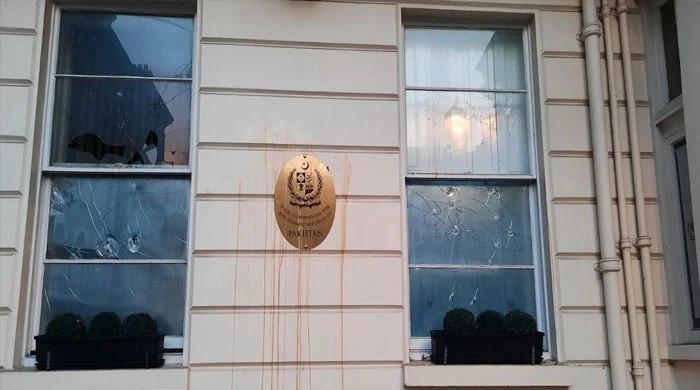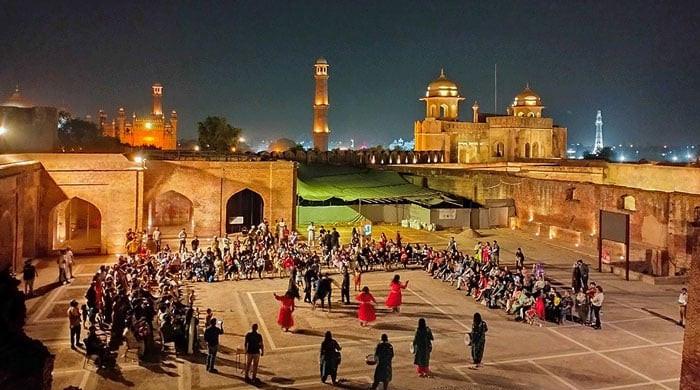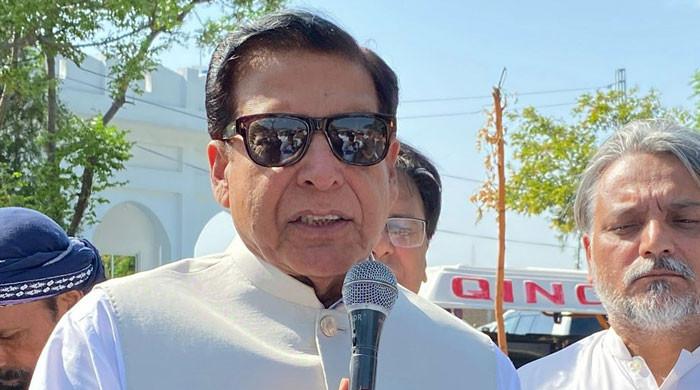Sindh cabinet approves blanket age relaxation for govt jobs
Sindh extends upper age relaxation for govt jobs until December 2026
February 16, 2025

- Sindh extends age limit for government job applicants.
- Five-year age relaxation approved for civil service jobs.
- Police and competitive exams excluded from age relaxation.
KARACHI: The Sindh cabinet on Saturday approved amendments to the upper age limit rules for government jobs and passed the Civil Courts (Amendment) Bill and the Universities and Institutes Laws (Amendment) Bill, which had been returned by the governor with his observations, The News reported.
Presided over by Chief Minister Syed Murad Ali Shah at the CM House, the cabinet meeting sanctioned the Sindh Civil Servants (Relaxation of Upper Age Limit) Rules, allowing significant age relaxations for candidates seeking government employment.
Government servants with two years of continuous service will be eligible for up to five years of relaxation by the respective administrative departments. General candidates will be entitled to up to two years of relaxation by the administrative department, and up to five years by the services, general administration and coordination department.
Widows or children of the civil servants who die during service will also be eligible for up to five years of relaxation by the administrative department. Persons with disabilities, divorced women and widows will also be entitled to up to five years of relaxation by the administrative department.
Under Rule 5, upper age relaxation for general candidates would be granted based on compelling reasons and sound justifications, including medical issues, death of parents or spouse, natural calamities, delays in appointments, and recruitment bans. To assess these cases, special committees will be constituted.
Recognising prolonged delays in recruitment, and the overwhelming number of applications, the cabinet approved a blanket relaxation of up to five years beyond the maximum age limit prescribed in the appointment or recruitment rules.
This relaxation applies across all departments, except for the police, and posts filled through the Combined Competitive Examination conducted by the Sindh Public Service Commission. This relaxation will remain in effect for an initial period of two years: from January 1, 2025, to December 31, 2026.
Civil courts bill
The meeting was told that the Sindh Civil Courts (Amendment) Bill, 2025, passed recently by the provincial assembly was returned by the governor with an observation regarding the jurisdiction of the Sindh High Court (SHC).
The governor expressed reservations citing Article 175(2) of the constitution, which states that courts can only exercise jurisdiction conferred by law. He emphasised that the SHC’s original jurisdiction derived from Clause 9 of the Letters Patent, 1866, allows it to hear civil cases exceeding a specified pecuniary value within Karachi.
The Sindh Civil Courts Ordinance, 1962, grants original jurisdiction to district courts but does not override the SHC’s jurisdiction. After a thorough discussion, the cabinet passed the bill asserting that it does not violate Article 175, and aligns with the civil courts ordinance, which has been amended multiple times without prior objections.
The meeting argued that the SHC’s backlog of cases is overwhelming, with only a few benches hearing civil suits. In contrast, district courts have a larger pool of judges that can facilitate quicker resolutions.
Regarding judicial expertise, the meeting pointed out that maritime matters remain under the SHC’s jurisdiction, while intellectual property cases are handled by specialised tribunals, and banking matters are dealt with by dedicated banking courts. The PA had enacted the amendment as a remedial measure to provide swift and cost-effective justice.
Universities bill The meeting was told that the PA had passed the Sindh Universities & Institutes Laws (Amendment) Bill, which expands the eligibility criteria for vice chancellor appointments at public universities.
This bill was initially proposed by the universities & boards department through the search committee, and underwent extensive deliberation before receiving the cabinet’s approval on December 4, 2024. After further review and modifications by the relevant standing committee, the PA passed the bill on January 31, 2025.
Upon submission for assent, the governor raised objections, particularly concerning the removal of the PhD requirement for VC candidates. The governor also referenced the guidelines of the Higher Education Commission that stipulate that VCs should be distinguished academicians, preferably with a PhD.
It was pointed out during the discussion that according to the original bill, candidates must hold a master’s degree, preferably a PhD, in the relevant field, along with 15 years of experience in academia, civil society, research or leadership roles, as well as a distinguished record in research and publication.
The standing committee proposed amendments to clarify these experience requirements while retaining the same basic criteria that the PA had passed. The cabinet was informed that in the original bill, it was stated that a cadre officer selected as a VC must resign from civil service.
The standing committee amended this to specify that the officer must either resign or seek retirement from service, depending on the individual case, which the PA also passed. It was also pointed out that the original bill did not specify an age limit.
However, the standing committee established that general candidates must be under 62 years, retired high court judges must be under 63, and retired Supreme Court judges must be under 67, which the PA passed. The cabinet approved the bill, and referred it to the PA for further action.











